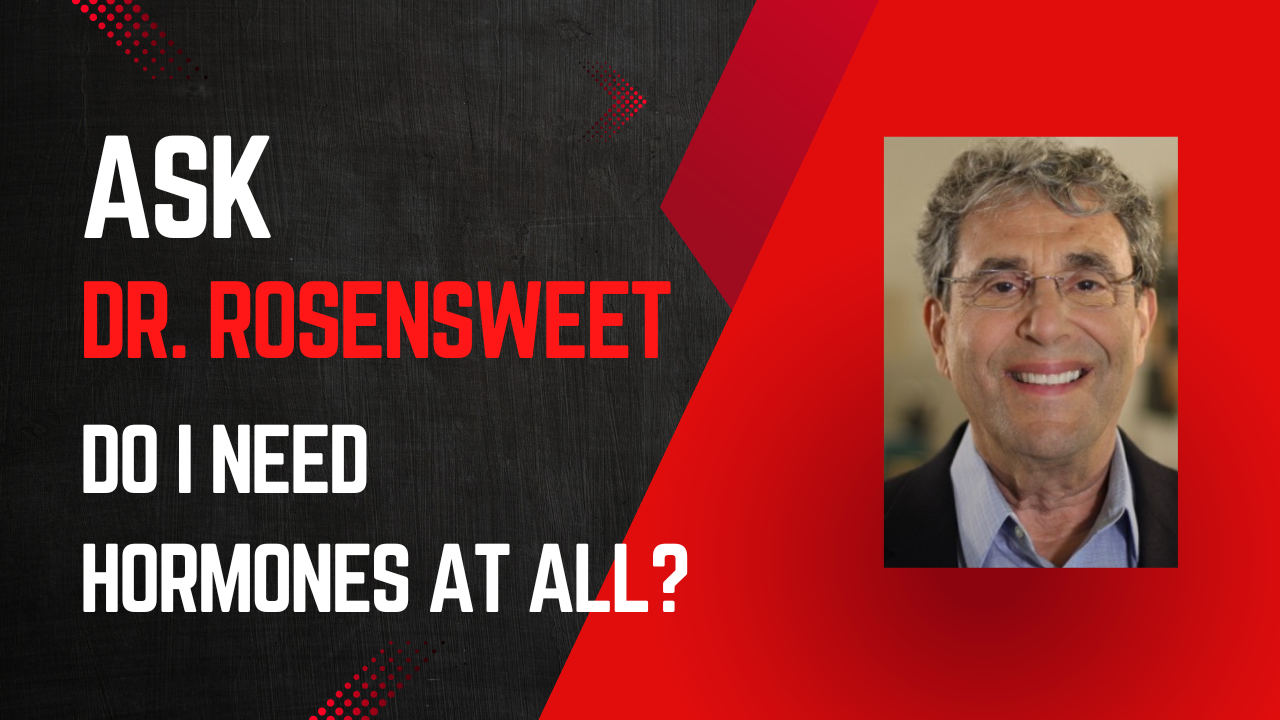
I was recently asked by a woman, “Do I need hormones at all?”
Short answer: yes, yes, and yes. Women’s ovaries produce four hormones, and do so at peak output at age 20, +/- a few years. From that age onwards hormone levels decline, ultimately, in elder years, to close to zero levels. These ovarian hormones, estrogens, progesterone, testosterone and DHEA are some of the most powerful biochemicals in a woman’s body. They have a multitude of functions related to reproduction, and also, that go far beyond reproduction to include brain, bones, muscles, arteries, bladder, skin, and more. Their decline with aging is very consequential. Decline is gradual for decades, precipitous in midlife (“menopause”…even the period ceases), and then further decline continues to occur.
Understanding Hormonal Decline
Initial consequences of hormonal decline can be very impactful in a woman’s life. Initial decline of progesterone can be the biological source of unexplained anxiety and sleep disturbance. Estrogen declines can lead to loss of vaginal health, pain on intercourse, loss of libido, weight gain, hair loss, mood decline, and hot flashes strong enough to awaken a woman in the middle of the night, with consequential racing mind that can last for too long a time. Life-disruptive. And the list is longer.
Age Related Challenges
What so many fail to realize is that much of the most undesirable aspects of continued “aging” relate to hormonal decline. Loss of muscles (sarcopenia) leads to instability of gait, eventually to canes and walkers and wheelchairs. Loss of bone coupled with muscle loss instability leads to falls and fractures, that can be life ending. It’s the loss of muscles and transition from walker to wheelchair that often leads to one of the most undesirable outcomes: the need to leave home and move to an assisted living facility (ALF). Coupled with loss of bladder function, thus adult diapers and loss of cognitive function so common in elderly women, even to the point of dementia, we see progression to nursing homes. I have queried a physician who has worked with patients in nursing homes, “what percentage of patients in these facilities are there because of hormonal decline?” “80%” was the doctor’s response.
The Transformative Impact of Hormonal Replenishment
As a physician specializing in this work for over 30 years, it is ever so rewarding to assist women with hormone replenishment in mid-life. Life disruption can so dramatically reverse to “feeling myself again” and continuation of the woman’s life and great work. What was a surprise to me initially was the realization that the greatest, most cherished by the woman, ultimate result of this replenishing is in the retention of lifelong vitality, libido, and skin, yes, yet most significant, the retention of the ability to walk, think, and not have the need to have adult diapers, wheel chairs, ALF’s and nursing homes. The latter achievements are the greatest reward for the patient.
Conclusion
There are very very few women that will live into their nineties with the vigor and vitality, libido, and mood that they would like to have unless hormonal issues are successfully addressed. On the flip side, it is a special privilege to interview and view the women who have good hormonal replenishment: so many of them shine, know why, and are ever so grateful.
